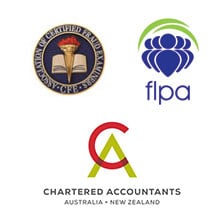Chartered Accountant Found Guilty Of Fraud
Peter Mark Dunham, 75 years of age from Adelaide was sentenced to eight years two months imprisonment on 5 May 2020 in the District Court Criminal Jurisdiction Adelaide.
He was charged in 2016 with numerous counts of theft and deception committed over a seven-year period between 2008 and 2015. The victims of his offending were either clients of his accounting practice, (many of whom were also friends) and a national not for profit organisation that he was the treasurer of.
After four years and just short of his pending trial he changed his plea from not guilty to guilty, to a number of counts representative of his offending conduct.
Multiply counts of deception, theft and aggravated theft were identified and quantified. The amount he stole was in excess of $1.3 million from a group of five private investors. He admitted to multiple other similar offences but these were not proceeded with by the prosecution and he will not be charged for.
His complex system of robbing Peter to pay Paul and then repay Peter before the end of financial year came unstuck when his personal and economic circumstances changed which left him vulnerable and unable to continue to service his own debts including the mortgage payments for several investment properties he held across Adelaide.
The Australian Tax office had also notified one of his clients that their tax obligations had not been met by the accountant which started another chain of events in which money was stolen from other investors to pay this debt back to the client.
His systematic process of dishonesty unravelled piece by piece.
Dunham’s’ belief was that the money would be paid back to all the individuals involved after the value of the investment properties increased and then sold. Sadly, the individual investors will not be receiving any such payment or compensation.
Steven Ponsonby, Director of Forensic Accounting Qld was engaged to investigate a number of anomalies in the financial records of a national not for profit entity that Mr Dunham was the treasurer for.
The work undertaken by Steven Ponsonby in quantifying the misappropriation represented the tip of the iceberg with the forensic report work being utilised by the South Australian authorities as part of what became a far broader Ponzi style investment scheme.
The majority of investors/victims involved in this case are seniors who now face a lifetime of financial hardship instead of the secure well- earned retirement plan they thought they had in place.
These people are not only left with a financial burden but will spend the rest of their days feeling betrayed by a both a “Trusted Adviser” and friend who over a long period of time deliberately and repeatedly stole from them to benefit himself and his lifestyle.
In sentencing Mr Dunham, Judge Muscat commented:
“Your offending behaviour is egregious. You engaged in a lengthy course of deliberate, dishonest conduct over which you abused your position of trust in order to benefit yourself.
As King CJ stated in R v Seagrim (1994) S4888 delivered 9 December 1994:
It is unnecessary to stress the gravity of crimes involved in misappropriating money which has been entrusted to a professional person. There is a very substantial element of breach of trust involved in such offences.
Clients who entrust their money to professional persons do so because of the standing which those persons enjoy and are entitled to expect that the money will be dealt with, as it ought to be, for their benefit.”
Our constant mantra is to encourage every business and individual to have strict financial procedures in place and not have just one individual having access and responsibility for all the financial transactions. Whilst, we all have a requirement to seek professional advice from time to time, if the interest rate being offered seems too good to be true, then the reality is that it most likely is!
If in doubt, seek a second professional’ opinion and don’t rely on your “friends” for professional advice.
Here at Forensic Accounting Qld we are dealing with more and more matters like this. However, not all of exposed fraudsters are reported to the Police or necessarily taken to court. This is unfortunate as the impact of such a crime creates such a huge domino effect not only across the Proprietors’ of a business but also their families and the broader Community.
Fraud awareness and prevention procedures should be paramount to any individual or business and if you are not sure if your business has such preventative measures in place, then you need to find out!!
This case highlights the importance of engaging the correct professional help at the first indication of an anomaly or any fraud behavioural red flag[1].
Having a Certified Fraud Examiner (“CFE”) on your team will give you the best possible chance of achieving a successful prosecution and maximising a civil recovery in any occupational fraud. The CFE credential denotes proven expertise in fraud prevention, detection and deterrence.
The ACFE[2] is the world’s largest anti-fraud organization and premier provider of anti-fraud training and education. Together with more than 75,000 members, the ACFE is reducing business fraud worldwide and inspiring public confidence in the integrity and objectivity within the profession.
CFEs around the world help protect the global economy by uncovering fraud and implementing processes to prevent fraud from occurring in the first place.

